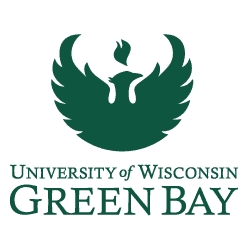Taking three writing workshop courses is a requirement for us Writing and Applied Arts Majors. One of our options is a Creative Nonfiction workshop, but if you’re anything like me, Nonfiction in general is not particularly a genre you get excited about. At least, that is how I felt prior to taking this Creative Nonfiction course.
When enrolling in it, I wasn’t all that thrilled. Intermediate Creative Writing was already filled, so Creative Nonfiction was the backup plan I didn’t think I’d have to rely on. I didn’t know much about the genre, so I assumed all books in the genre were the same. I figured the material we would read would be boring stories about some random person’s life, and then I’d have to write boring stories about my own life. I preferred fantasy–I was more fascinated by an author’s ability to create entirely new worlds with new power systems and adventures you could never experience in real life.
In other words, I had severely underestimated Creative Nonfiction.
As we closed one of the last few of our readings for this (2023 Fall) semester, I realized Creative Nonfiction might have just dethroned Fantasy Fiction as my favorite genre to read. The book was Why Fish Don’t Exist by Lulu Miller, and it’s about a taxonomist named David Starr Jordan who was determined to bring order to the chaos of life. Miller was inspired by Jordan’s grit–his ability to pick himself back up despite the numerous times the universe knocked him down. So she goes on a journey to discover who Jordan was and the hardships he overcame over the years. Miller wanted to know what continuously encouraged Jordan to get back up on his feet, what fueled him, as she was never one to brush herself off as easily.
The summary hinted that it was related to science, so I approached it with the same hesitation I had when first enrolling in the class. It should come as no surprise; I’m a Writing major after all, so I balked at the thought of reading anything science-related just as I used to at Nonfiction.
I had, again, underestimated Creative Nonfiction, and I was reminded what makes it such an enthralling genre.
The most interesting aspect of Creative Nonfiction to me that appeared in Why Fish Don’t Exist is the method an author employs in order to tell a story–sometimes a story that is not their own. In the book, Miller walks us through the life of David Starr Jordan and connects it to her own in such a brilliant, braided way that I found myself amazed by how well she wrapped it all together. Not once did the tension evaporate due to the switch in stories, and the fact that there was tension at all as I read had me shocked.
And at that moment I was confused as to why I had forgotten what this class had been teaching me. I was thrown off by the mere term “science” that I had attached to the book, and I had failed to remember what I was enjoying so much about Creative Nonfiction.
Miller made her story and the life of a dead taxonomist so interesting when I was expecting it to be the exact opposite. Her humor brightened the pages on numerous occasions and she formed a narrative out of research that had seemed so nonlinear. She intertwined various topics so cleverly within the overall narrative, topics that only started as a single thread poking through the intricate fabric that is Jordan’s life until Miller wove them into a grander story.
In Creative Nonfiction, the story already exists. The author’s job is to find it and figure out how to tell it and see how it can be further expanded. The original story is the root and the author illustrates the branches.
It is a challenge to write at times. In this workshop class, I’m still struggling to figure out how to write about someone or something else rather than just my own experiences. But as I continue reading other works and exploring what already exists, I’m discovering new ways to tell a story.
So, if you’re looking for a writing workshop class to take in order to fulfill your required credits, I recommend Creative Nonfiction–even if you are unsure. In fact, if you are even the slightest bit hesitant, then I most urgently recommend you enroll.


